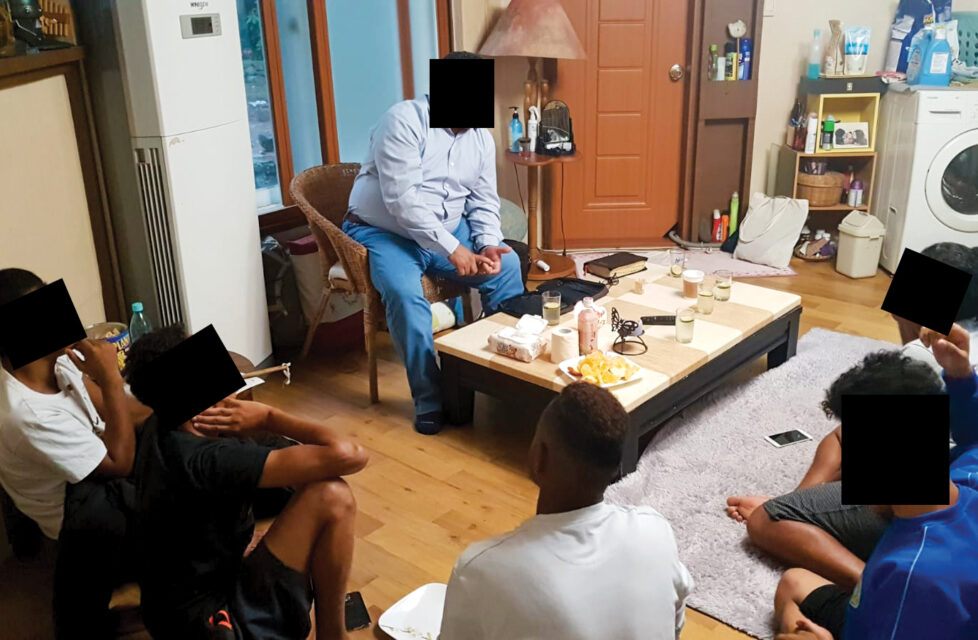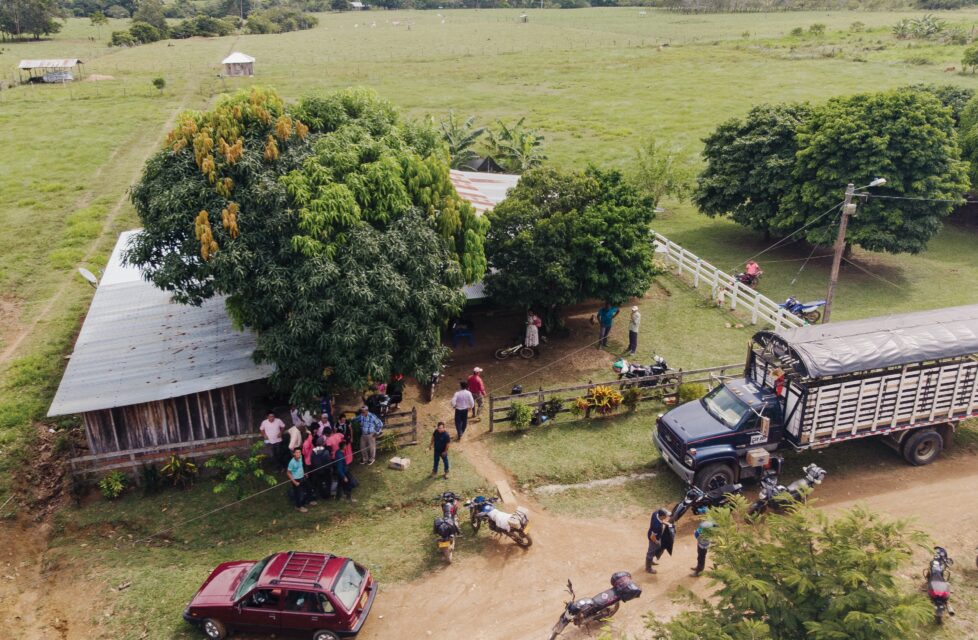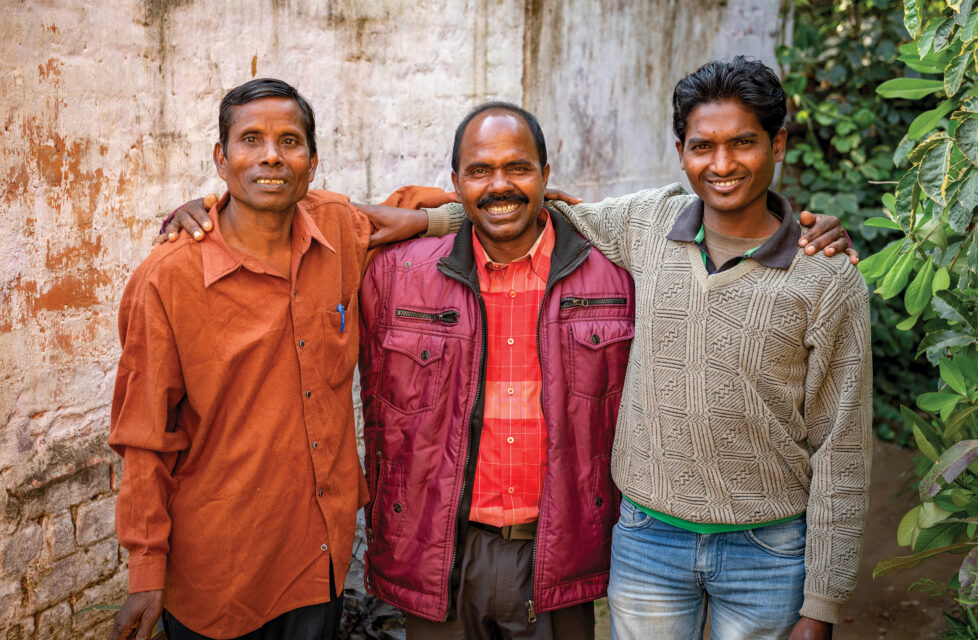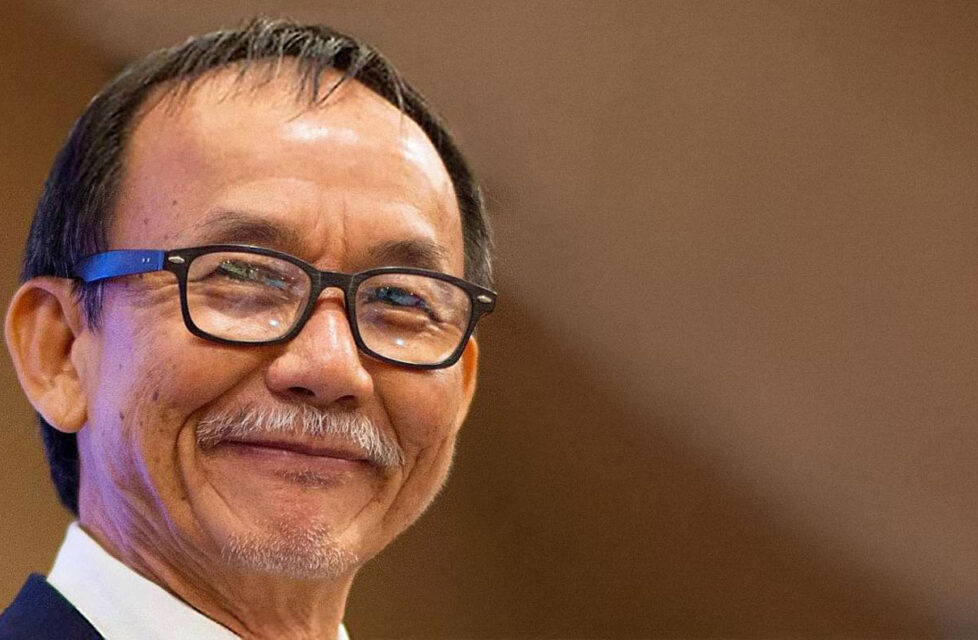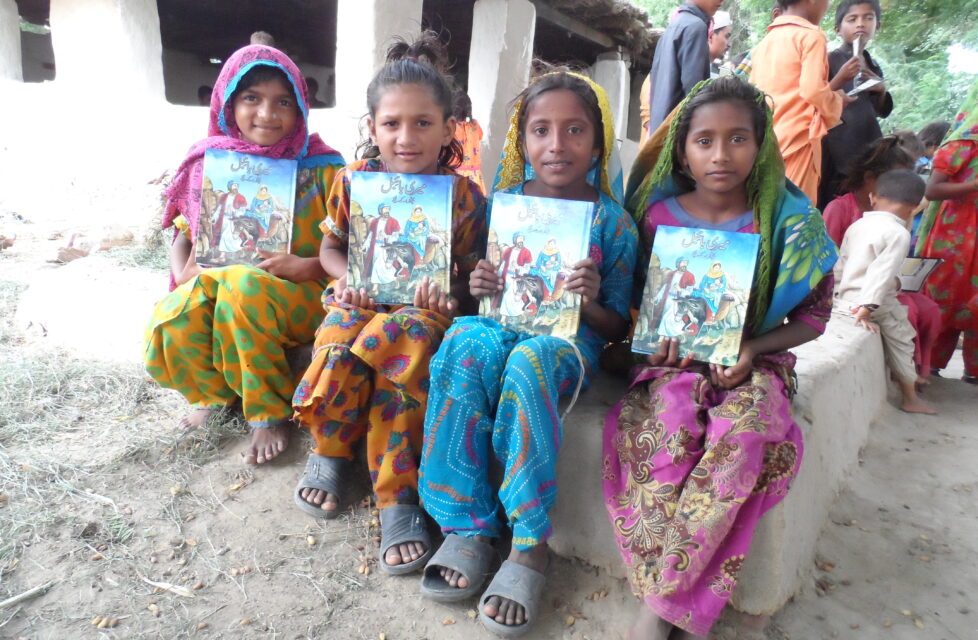After spending five years building relationships with 40 North Koreans in China, a faithful Chinese Christian eventually led one man — a North Korean government official — to Jesus. Lee Joon-ki scanned the Chinese coffee shop carefully for the right place to sit. The shop’s owner, a fellow Christian, had told him about a middle-aged laborer from North Korea who was in the shop, and Joon-ki wanted to sit in just the right spot to start a conversation with him. After sitting down at a table near the man, Joon-ki began a casual conversation with him, even managing to draw the coffee-shop owner into the discussion. These conversations, which can quickly turn dangerous for everyone involved, are what he lives for; Joon-ki is a front-line worker who shares the gospel with North Koreans inside China, near the border with North Korea. “Encountering these North Korean people, building relationships and leading them to Christ, is God’s work; it’s full of God’s grace,” he said. “Just meeting with him for an hour is so precious. It is not something we can do normally. Each time could be last time.” Joon-ki, an ordained pastor, has served as a front-line worker for over six
Read MoreHow a former Muslim took the gospel to other Yemenis and nearly lost everything in the process As a devoted Muslim, Ibrahim was always ready to defend the Quran. So when a man walked into his small store in Yemen one day in 1997 and asked him a startling question — “Have you ever read the Bible?” — he proudly told the man that he believed the Bible was full of error and distortion. At the end of their conversation, the man gave Ibrahim a New Testament and urged him to read it for himself. Ibrahim agreed, intending to make note of every problematic verse he found. But the more he read the Bible, the more problems he saw with the Quran. “I was trying to help him become a Muslim, but it caused me a headache,” Ibrahim recalled. After reading Jesus’ teachings to “love your enemies” and “bless those who curse you,” Ibrahim considered leaving Islam. He knew, however, that following Jesus Christ would bring shame to his family and endanger his life. At the man’s urging, he continued to study the Scriptures more deeply and ask God to reveal the true way to him. Finally, about a year
Read Morewatching the church go underground After turning away from Christ in the early days of Kim Il Sung’s Communist regime, a North Korean woman was led back to faith by a single Bible verse. Rhee Soon-ja has vivid memories of her father reading the Bible to her and her six siblings when they were children. She remembers that the verses were printed vertically, rather than horizontally. And although now 82 years old, she can still picture the phrase “Christ Is Lord of This House” hanging from a wall in their home. “My parents prayed that God would use me as His servant,” she said, recalling another childhood memory. “I grew up dreaming of becoming an evangelist.” Those were the days before Korea split into North and South, communist and free. Those were the days when the Christian faith flourished in northern Korea. “There were many Christians,” Soon-ja shared from her living room in South Korea. “I attended the Methodist Church. All the congregations gathered every Sunday.” When Soon-ja was a young girl, her family was among the first to experience persecution under the rule of Kim Il Sung, North Korea’s first leader. Today Christianity is illegal there, and those who
Read Morea dangerous secret Once fearful of even seeing a Bible, a former North Korean border guard now embraces it. Nearly every day for 11 years, Park Chin-Mae dutifully monitored North Korea’s border with China. From 8 a.m. to 10 p.m., he watched for North Koreans attempting to defect or smuggle contraband into the country. Chin-Mae took pride in his work as a border guard, even though he was guilty of the same illegal activities for which he arrested others. Like many North Koreans, he relied on illegal smuggling simply to survive. becoming the enemy When another guard reported Chin-Mae’s smuggling ring, he spent 60 torturous days in prison. And he hadn’t even smuggled the most dangerous item into the country — a Bible. “Those who let Bibles into North Korea had a more severe punishment than someone who kills people,” Chin-Mae said. For Chin-Mae, getting caught smuggling meant being reduced from a respected soldier to a worthless prisoner. For the first 10 days, he was forced to stand in a bowing position and was allowed to move only to use the restroom. If he moved, even during the night, he was beaten mercilessly with a wooden baton. For the next
Read MoreChoon-yei was born into a comfortable and secure family, by North Korean standards. Her father was a military officer, and her mother was a housewife. Since family background largely determines the future for North Korean citizens, her family could expect a good life. In 1995, however, just a few years after Choon-yei’s birth, North Korea experienced the worst famine in its history. Millions died of starvation. And even though her father was a military officer, Choon-yei’s family received only two fistfuls of corn flour each day — not nearly enough to feed a family of four. In desperation, they gave up on the government’s ability to provide for them and began dealing on the black market. But the extra corn flour that her mother had obtained from a relative and sold illegally still barely provided for their family. “Any North Korean who survived that time period is a living miracle,” Choon-yei said. “North Koreans had to break the law just to eat a meal. State security agents would confiscate anything they uncovered on the black market and eat it themselves.” The famine was just the beginning of Choon-yei’s suffering. Her parents died when she was in her early teens, and
Read MoreAsking for permission to preach is a way of life for “Leonardo.” Merely forgetting or refusing to ask can result in death at the hands of the guerrillas or paramilitaries in Colombia’s “red zones.” Pastors in these areas are viewed as obstacles to the groups’ political ambitions because young people who become Christians are no longer attracted to the groups’ violent lifestyles. “They give you a time to start preaching, and you have to begin and be done at that time,” Leonardo explained. “There was no nighttime preaching or walking outside [allowed], and I always had to give a note if I was going to go anywhere.” Leonardo’s church soon transferred him to a different area, where he worked with people who had been displaced by guerrilla groups in the red zones. But his new home was not free from opposition, either. “There are gangs, hitmen,” he said. “I have been there two years. Two times they have not let me preach.” The gangs stopped Leonardo in front of his church and denied him entrance, saying, “Today no preaching!” But Leonardo found another place to preach. With a speaker and microphone in hand, he began preaching outdoors. He first began
Read MoreAs the sound of gunfire grew louder, 10-year-old Luis and his brother ran to their room and crawled under their bed. They knew the gunfire meant guerrilla fighters from the Revolutionary Armed Forces of Colombia (FARC) were again attacking their small jungle village in one of Colombia’s “red zones,” particularly dangerous areas. When soldiers from the Colombian Army arrived to repel the attack, the guerrillas took the boys’ father hostage to aid their escape. Although they released him four hours later, fighting between the guerrillas and government forces dragged on for days. Many of Luis’s friends were killed in the attack. All Things Made New Luis found true peace in Christ at age 13 and immediately felt the need to help people in villages like his who had suffered from the decades-long insurgency. “He told me He was my God and my Father, and He would always be there for me,” Luis said. “I felt the love of God come back in my life.” Using his small savings, Luis bought books, games and other items to distribute in his old village, which remained under threat. He also brought New Testaments and gave them to everyone he met, including police officers,
Read MoreThree Indian believers faced murder charges after praying for a church member who later died. Pastor Surjan Khariya became a believer in 2004 after being healed from the same illness that had taken his 7-year-old daughter’s life. Like most in his tribal village in Jharkhand state, India, he was an animist, worshiping nature with animal sacrifices and offerings of alcohol. But when he was healed from the disease after Christians prayed for him, Surjan gave his life to Christ and became the leader of a house church. Another member of Surjan’s house church, a man named Kolah Lohra, literally stumbled across the church one day in 2010 after hearing sounds of worship coming from the building. Kolah, who had battled alcoholism and drug abuse for years, drunkenly stumbled into the church meeting, dancing to the drumbeat and singing loudly. Unfazed by his drunken performance, the Christians invited him to come back the next day, which, surprisingly, he did. Kolah felt profoundly changed through Christian worship and prayed for a new beginning. He immediately boxed up all his drugs and tobacco and threw them out. In 2017, Kolah’s 27-year-old nephew, Krishna, along with his wife and three children, decided that they,
Read MoreEyewitnesses said it was like a scene from a movie. On Feb. 13, 2017, three black SUVs surrounded Pastor Raymond Koh’s silver sedan and forced it to the side of the road. Men dressed in black got out of their vehicles, grabbed Pastor Koh and shoved him into one of the SUVs while men on motorbikes stopped any approaching cars. The SUVs and Pastor Koh were gone in 40 seconds, and no one has heard from him since. Susanna is convinced that her husband’s abduction is tied to a 2011 confrontation with officers from the Selangor Islamic Department. As she and her husband hosted a dinner one night for sponsors of a charity they had started in 2004, 30 officers raided the event on the assumption that they were evangelizing Muslims, an illegal act in Malaysia. While some Muslims were among those attending the dinner, its sole purpose was to thank sponsors of their Harapan Komuniti (Hope Community) charity, which helped the poor, single mothers, children, drug addicts and those diagnosed with HIV/AIDS. About 120 people from various backgrounds attended the event in a local church. During the raid, the officers took photographs and videos of those in attendance, and
Read MoreWhen more than 20 Christian children in northern Kenya received candy from Muslim evangelists in November 2018, they readily pledged to return to Islam, which predominates their Borana Oromo tribe. But days later, Christian workers arrived with a load of cargo that proved more precious and lasting than sugar — children’s Bibles. Christian workers led five donkeys loaded with children’s Bibles through thick forests and across winding rivers to reach the village of Uran Lataka, near Kenya’s border with Ethiopia. They then distributed copies of the illustrated Bible to 52 children, including many who had recently turned their backs on the Christian faith. As the children saw the Bible stories told through the book’s colorful, dramatic images, they were hooked, and in the days that followed most who had been enticed by the Muslims’ candy renewed their commitment to Jesus. “One of the kids couldn’t stop looking through the pictures of the Bible when he received it, even after reaching home,” a VOM worker said. In addition to strengthening the children who were secure in their Christian faith and re-engaging those less committed, children’s Bibles have also proved valuable to Sunday school teachers as a resource for weekly lessons. After
Read More

